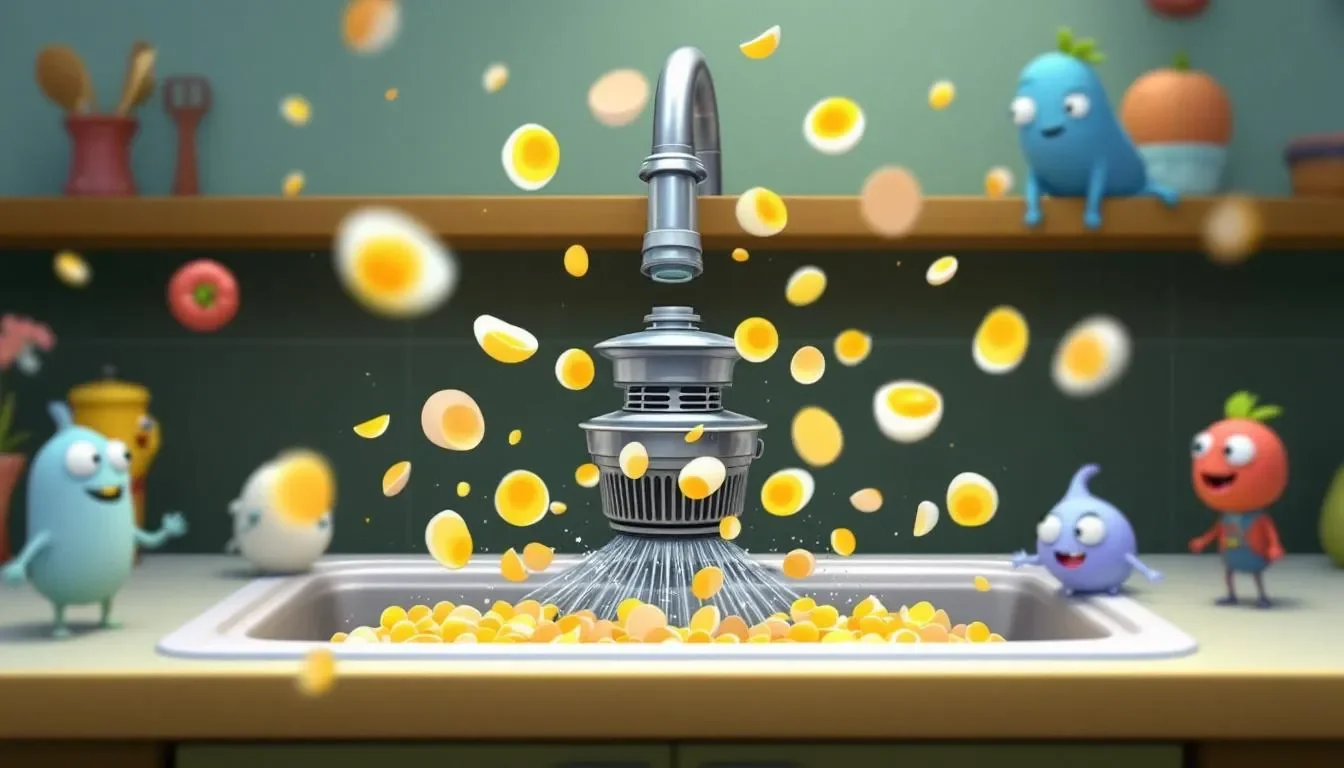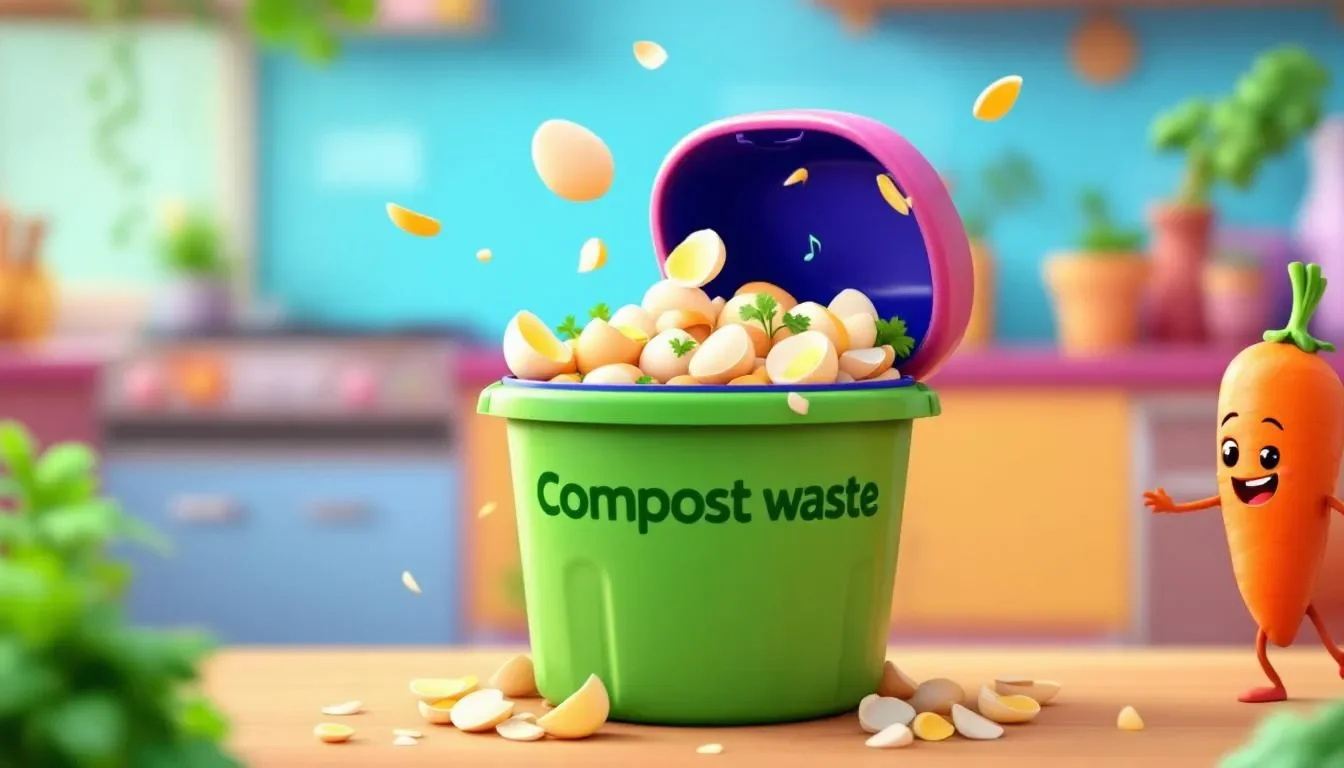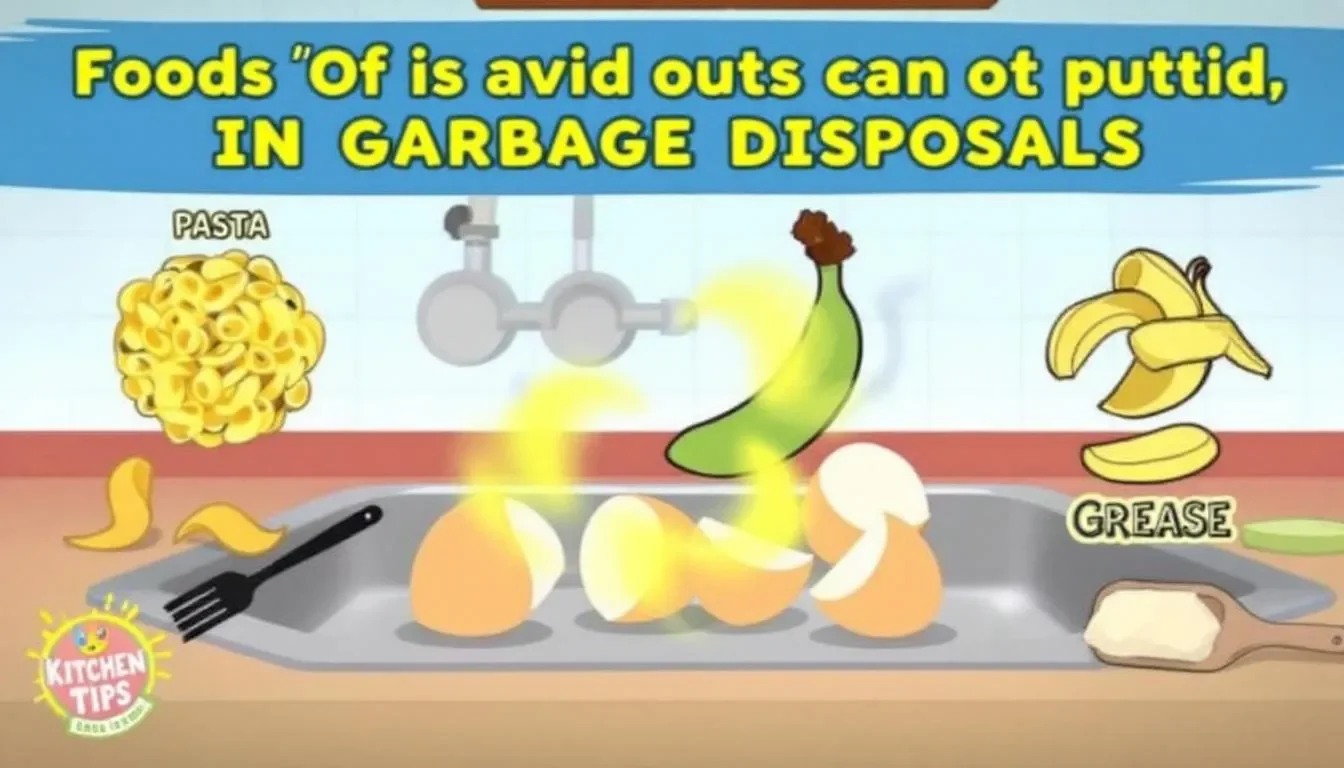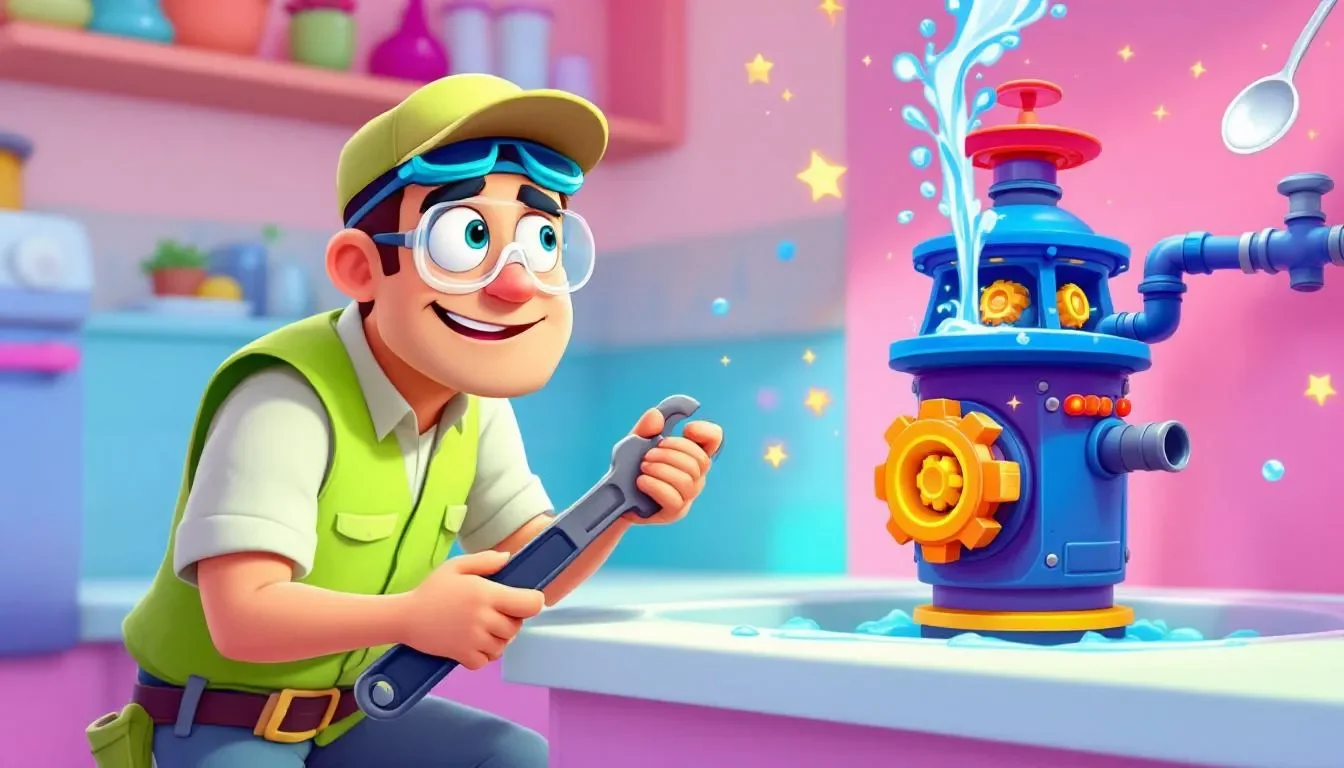Can you put egg shells down the garbage disposal? While garbage disposals are convenient for kitchen cleanup, not all waste should go into them, especially egg shells. The short answer is no. Egg shells can cause clogs and harm the blades. This article will explain why and offer better ways to dispose of them.
Key Takeaways
Contents
- 1 Key Takeaways
- 2 The Truth About Putting Egg Shells Down the Garbage Disposal
- 3 How Egg Shells Affect Garbage Disposals
- 4 Alternative Ways to Dispose of Egg Shells
- 5 Safe Foods for Garbage Disposals
- 6 Foods to Avoid Putting in Garbage Disposals
- 7 When to Call a Plumber
- 8 Protect Your Garbage Disposal
- 9 About K L Contractor Plumbing Inc. Marietta’s Neighborhood Plumber
- 10 Summary
- 11 Frequently Asked Questions
- 11.1 Can eggshells really sharpen garbage disposal blades?
- 11.2 What are the best foods to put down a garbage disposal?
- 11.3 How often should I use ice cubes in my garbage disposal?
- 11.4 Why should I avoid putting coffee grounds in my garbage disposal?
- 11.5 When should I call a plumber for my garbage disposal?
Eggshells do not sharpen garbage disposal blades and can cause clogs and damage, so avoid putting them in the disposal.
Composting eggshells is an eco-friendly alternative that enriches soil and helps prevent plumbing issues.
To maintain garbage disposals, use cold water, avoid hard and starchy foods, and consider ice cubes and citrus fruits for cleaning.
The Truth About Putting Egg Shells Down the Garbage Disposal

Many people believe that putting eggshells down the garbage disposal can help sharpen its blades. This myth has been passed down through generations, like an old kitchen tale. However, this misconception needs to be put to rest. Eggshells not only fail to sharpen the blades but can cause significant issues for your disposal unit. The thin membrane inside the eggshell can contribute to blockage in the pipes, increasing the risk of plumbing problems.
The belief that eggshells can enhance disposal blade sharpness is a kitchen myth. In reality, eggshells can cause more harm than good. The thin membrane inside the eggshell can wrap around the blades, leading to potential damage and reduced efficiency of the garbage disposal.
Neither eggshells nor ice should be used to sharpen garbage disposal blades. Eggshells can lead to clogs and other mechanical issues, so avoid putting them in the disposal altogether. For example, eggshell fragments can accumulate and cause a blockage, resulting in a kitchen sink backing up and requiring professional cleaning. Here’s how these delicate fragments affect your garbage disposal.
How Egg Shells Affect Garbage Disposals

Eggshells do not enhance the sharpness of disposal blades; they can actually cause harm by entangling around the blades:
The inner membrane of an eggshell can wrap around the garbage disposal blades, leading to potential damage.
This can cause your disposal to work inefficiently.
It may even require professional repair.
When you put eggshells down the garbage disposal, they don’t just disappear. Instead, the shells can:
Wrap around the blades and create clogs
Result in plumbing issues
Lead to unpleasant odors
Cause a complete breakdown of your disposal unit.
Placing hard or inappropriate items in the disposal can cause unnecessary wear and tear, reducing the lifespan of your appliance and increasing the likelihood of needing repair. Many believe that eggshells can sharpen garbage disposal blades, but this is a misconception. They can lead to significant mechanical problems and should be disposed of through other means. Eggshells should never be thrown into the garbage disposal. Here are some alternative ways to dispose of eggshells without harming your garbage disposal.
Alternative Ways to Dispose of Egg Shells

One of the best ways to dispose of eggshells is through composting. Composting is an eco-friendly method that returns nutrients to the soil, benefiting your garden and reducing waste. Eggshells can be composted to return nutrients to the soil, helping your plants grow strong and healthy.
Before composting, wash and dry the eggshells to reduce odors. Crushed eggshells can be sprinkled in the garden as a natural fertilizer and for pest control. This method helps the environment and keeps your garbage disposal free from potential clogs and damage. Additionally, you can add the eggshells to your compost bin to enhance its nutrient content.
Now, let’s discuss what foods are safe for your garbage disposal.
Safe Foods for Garbage Disposals
Knowing which foods are safe to put down the drain is crucial for maintaining your garbage disposal. Soft foods and liquids are generally safe, helping to prevent clogs and maintain functionality.
Safe food waste for garbage disposals includes small pieces of fruit, cooked vegetables, banana peels, and non-fibrous food scraps. These fine, soft scraps are generally fine for most garbage disposal units, as they can be easily ground up without harming the blades or creating blockages, making them a better option than trash.
Incorporating practices such as using cold water, ice cubes, and citrus fruits can further ensure the smooth operation of your disposal.
Cold Running Water
Cold or cool water helps prevent clogs and bad odors when using a garbage disposal. To ensure smooth flow of food particles and prevent plumbing issues, follow these steps:
Run cold water for ten seconds before using the disposal.
Use the disposal as needed.
Continue running cold water for ten seconds after using the disposal.
Avoid using hot water during disposal operation, as hot water can cause fats to liquefy and later solidify in the pipes, leading to clogs.
This simple practice can significantly prevent plumbing issues.
Using cold water during garbage disposal operation has several benefits:
It causes food waste to harden, making it easier to grind.
It helps food particles flow smoothly through the pipes.
Flushing the disposal with cold water can loosen stubborn particles that cause jams.
This effectively prevents clogs.
Now, let’s explore how ice cubes can also help maintain your garbage disposal.
Ice Cubes
Ice cubes help maintain the performance of the disposal by cleaning and removing debris from the blades. Using ice cubes every other week keeps your garbage disposal in top shape.
For enhanced freshness, add ingredients like lemon juice, vinegar, or biodegradable cleaning products to the ice cubes. This helps freshen the blades and leaves your disposal smelling fresh. Alternatively, you can use baking soda combined with vinegar as a natural, chemical-free way to clean and freshen your garbage disposal.
Practices like these can go a long way in maintaining the efficiency of your garbage disposal. Now, let’s discuss the benefits of using citrus fruits.
Citrus Fruits
Citrus fruits help break down gunk and reduce odors in garbage disposals. They combat unpleasant smells and maintain a fresher disposal environment. Cut citrus fruits into wedges and run them through the disposal with cold water for best results.
Citrus fruits not only help with odor but also aid in cleaning the disposal blades. The natural acidity breaks down any gunk stuck to the blades, keeping your disposal running smoothly.
Next, we will examine foods that are best not to put in your garbage disposal. It’s important to be mindful of what you throw away and dispose of.
Foods to Avoid Putting in Garbage Disposals

Many homeowners assume that all food items are safe to put in a garbage disposal, but some can cause significant clogs and damage. Hard foods such as bones and hard pits can jam the blades and damage the garbage disposal. Items like corn cobs, nuts, and other extremely hard materials such as bones should never be placed in the disposal, as they can cause serious damage or clogs. Knowing which foods to avoid is key to keeping your disposal functioning properly.
Certain foods, like clam and oyster shells, can harm disposal blades and lead to blockages. Grease and oils can solidify when cooled, causing clogs in the plumbing system.
Let’s break down these problematic substances foods into specific categories for better understanding.
Coffee Grounds
Coffee grounds can create clogs in garbage disposals. Coffee grounds can accumulate in the disposal and lead to significant plumbing issues. Instead of throwing them down the drain, consider composting or using them in the garden where they can benefit the soil.
Avoiding the disposal of coffee grounds can prevent sludge buildup and blockages. This simple change can save you from potential plumbing headaches and keep your disposal running smoothly.
Next, let’s discuss the impact of grease and fats.
Grease and Fats
Grease and fats can solidify when cooled, leading to clogs in garbage disposals. Improperly disposed grease can push further into pipes, create clogs, and cause drainage issues. To prevent this, avoid pouring solid fats like butter or coconut oil down the disposal and use cold water to help flush fats down the drain.
Being cautious with grease and fat disposal is vital for maintaining a well-functioning garbage disposal. Simple practices, such as wiping excess grease from pans before washing, can prevent plumbing issues.
Now, let’s look at the problems caused by starchy foods.
Starchy Foods
Starchy foods like potato peels, rice, and pasta can expand and clog drains. Potato peels can slip through the blades and cause clogs. Large quantities of starchy items can form a thick paste in the disposal, causing issues.
Running food with cold water can help prevent blockages. Being mindful of the starchy foods you put down the disposal can avoid potential plumbing problems and keep your kitchen running smoothly.
Lastly, let’s explore the issues caused by stringy vegetables.
Stringy Vegetables
Avoid stringy vegetables in garbage disposals due to potential blade damage. They can tangle in disposal mechanisms and lead to operational failures. Corn husks are difficult to grind and can damage blades.
In summary, avoid placing stringy vegetables like celery and corn husks in garbage disposals to prevent damage. Being mindful of what you put down the disposal can save you from costly repairs and keep it running efficiently.
Let’s now discuss when it’s time to call a plumber.
When to Call a Plumber
Signs such as persistent clogs, foul odors, and frequent breakdowns should prompt a call to a plumber. Homeowners often experience frustration from a broken or smelly garbage disposal. Unusual sounds like grinding or humming indicate that an object is stuck or components are worn out.
Grease and oils can solidify in pipes, creating severe form clogs that require professional attention. Fibrous materials like celery can wrap around the blades and cause damage. If you encounter these issues, seek professional help from a plumber to avoid further damage. Experienced plumbers can efficiently diagnose and fix stubborn or recurring disposal problems, ensuring your system is restored quickly and safely.
Now, let’s look at how to protect your garbage disposal.
Protect Your Garbage Disposal

Regular use of the garbage disposal can prevent odor buildup and remove dish soap residue. Certain soft foods and liquids aid in maintenance by preventing clogs. Avoid overfilling the disposal to prevent jams or stress on the motor and blades.
Routine maintenance for garbage disposals includes sharpening blades, cleaning, and descaling, which can be easily done with ice cubes and vinegar. Following these tips can prolong the life of your garbage disposal and keep your kitchen running smoothly.
Incorporating these practices into your routine will not only protect your garbage disposal but also save you from potential plumbing issues. Additionally, some home warranties or protection plans may cover repairs or replacements for garbage disposals, offering peace of mind for homeowners. Let’s now summarize the key points and wrap up our guide.
About K L Contractor Plumbing Inc. Marietta’s Neighborhood Plumber
K L Contractor Plumbing Inc. is proud to serve as Marietta’s trusted neighborhood plumber, providing honest, dependable plumbing services across Cobb County and the greater Metro Atlanta area. As a locally owned and operated company, our team takes pride in helping Georgia homeowners and businesses keep their plumbing systems safe, efficient, and reliable year-round.
From garbage disposal repairs and drain cleaning to water heater replacement and leak detection, our licensed plumbers handle every job with care and professionalism. Whether you live near Marietta Square, East Cobb, Kennesaw, or Smyrna, our crew is just a call away for fast, same-day plumbing service when you need it most.
At K L Contractor Plumbing Inc., we believe quality plumbing should be accessible to every household. That’s why we focus on providing affordable rates, transparent communication, and long-lasting solutions that protect your home from costly water damage and plumbing failures. We’re more than service providers—we’re neighbors who care about keeping our local community running smoothly.
Our team specializes in:
As Marietta’s neighborhood plumbing company, we combine technical skill with genuine customer care. When you call K L Contractor Plumbing Inc., you can trust that your plumbing is in expert hands—from the first inspection to the final cleanup.
K L Contractor Plumbing Inc. keeping homes across Marietta, Kennesaw, Acworth, and the Greater Atlanta area flowing smoothly, one pipe at a time.
Summary
In summary, putting eggshells down the garbage disposal is a common myth that can lead to significant problems. Instead, consider composting eggshells and using them in your garden. Safe foods for garbage disposals include soft foods and liquids, while problematic items like coffee grounds, grease, fats, starchy foods, and stringy vegetables should be avoided.
Routine maintenance, such as using cold water, ice cubes, and citrus fruits, can help keep your disposal running smoothly. If you encounter persistent issues, it’s best to call a professional plumber. By following these tips, you can protect your garbage disposal and ensure it serves you well for years to come.
Frequently Asked Questions
Can eggshells really sharpen garbage disposal blades?
No, eggshells can’t sharpen garbage disposal blades and may actually cause clogs by wrapping around them. It’s best to avoid putting eggshells in there.
What are the best foods to put down a garbage disposal?
The best foods for your garbage disposal are soft items like small pieces of fruit, cooked vegetables, and non-fibrous scraps. Stick to those, and you’ll keep your disposal running smoothly!
How often should I use ice cubes in my garbage disposal?
Using ice cubes every other week is a great way to keep your garbage disposal blades clean and sharp. It really helps maintain its performance!
Why should I avoid putting coffee grounds in my garbage disposal?
You should avoid putting coffee grounds in your garbage disposal because they can accumulate and create sludge, which may lead to serious plumbing clogs. Keeping your disposal clear will save you from headaches later on!
When should I call a plumber for my garbage disposal?
If you’re dealing with persistent clogs, bad smells, strange noises, or frequent breakdowns, it’s time to call a plumber for your garbage disposal. Don’t wait too long, as these issues can lead to bigger problems!

